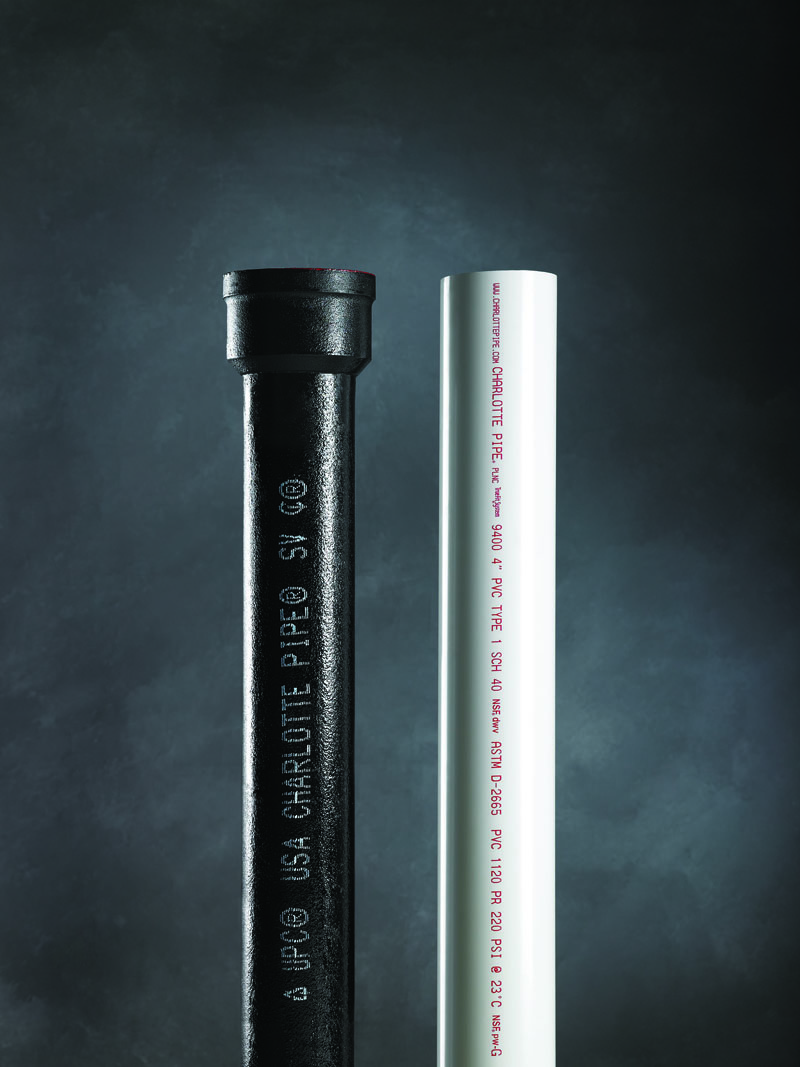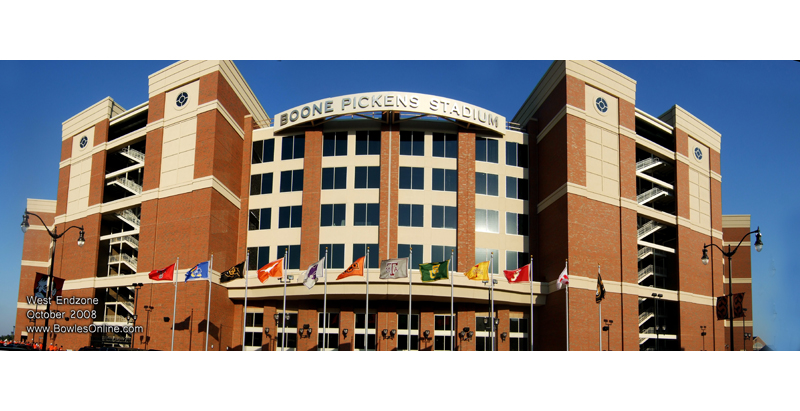At Charlotte Pipe and Foundry, we know that the first item on everybody's Value Engineering (VE) checklist is Cast Iron Soil Pipe (CISP) to PVC for drain, waste and vent applications. We make both plumbing systems, and believe that the right material should be used for every application. But, under financial pressure, things can get tricky in the VE process. That's what happened with one of the largest building projects in recent NCAA history, the Boone Pickens Stadium at Oklahoma State University (OSU).
In 2011, two years after it opened, a break in a plastic drain pipe was found. An inspection of the rest of the system revealed fifteen other breaks. The football team was forced to abandon the facility for five months while contractors jackhammered through finished concrete floors to fix the problems.
Litigation was eventually settled in February 2015, for $700,000. The biggest portion of the settlement ($400,000) was paid by the firm that did the architectural, engineering and design work. The water heater manufacturer agreed to pay $125,000 of the settlement. Properly functioning temperature and pressure relief valves, which are standard on all water heaters or boilers, will discharge water up to 200 degrees Fahrenheit — 60 degrees higher than the 140 degree limit on PVC. Sadly, avoidable mistakes like these are more common than they should be.

PVC can be used successfully below ground, but it requires careful installation and soil prep per ASTM D2321. Also, PVC has specific temperature and hanger spacing requirements. In addition, it requires extra care and attention in plenum spaces and in fire wall penetrations.
To make sure that the particulars and intricacies of this choice aren't confusing, we have prepared a downloadable brochure and handy checklist. The brochure covers the benefits of both systems, and the checklist is a simple yes/no form to help you understand the full ramifications of a PVC versus CISP VE decision.
Download the brochure, checklist and more VE resources at charlottepipe.com/VE.
What happened at OSU was an avoidable tragedy. With a proper and thorough understanding of the strengths and weaknesses of PVC and CISP for your plumbing application, you can greatly reduce the chance of anything like this happening to you.
*Please note: Information for this case study was found in published media reports and public records.
Related Stories
| Aug 11, 2010
Jacobs, HDR top BD+C's ranking of the nation's 100 largest institutional building design firms
A ranking of the Top 100 Institutional Design Firms based on Building Design+Construction's 2009 Giants 300 survey. For more Giants 300 rankings, visit http://www.BDCnetwork.com/Giants
| Aug 11, 2010
Polshek Partnership unveils design for University of North Texas business building
New York-based architect Polshek Partnership today unveiled its design scheme for the $70 million Business Leadership Building at the University of North Texas in Denton. Designed to provide UNT’s 5,400-plus business majors the highest level of academic instruction and professional training, the 180,000-sf facility will include an open atrium, an internet café, and numerous study and tutoring rooms—all designed to help develop a spirit of collaboration and team-oriented focus.
| Aug 11, 2010
Callison, MulvannyG2 among nation's largest retail design firms, according to BD+C's Giants 300 report
A ranking of the Top 75 Retail Design Firms based on Building Design+Construction's 2009 Giants 300 survey. For more Giants 300 rankings, visit http://www.BDCnetwork.com/Giants
| Aug 11, 2010
New Ways to Improve Water Efficiency
In the U.S. and most of the industrialized world, building occupants take for granted the simple convenience of filling a glass with clean, drinkable water at the kitchen sink. Yet worldwide, nearly a billion people globally have no access to safe drinking water, according to the Natural Resources Defense Council.
| Aug 11, 2010
News Briefs: GBCI begins testing for new LEED professional credentials... Architects rank durability over 'green' in product attributes... ABI falls slightly in April, but shows market improvement
News Briefs: GBCI begins testing for new LEED professional credentials... Architects rank durability over 'green' in product attributes... ABI falls slightly in April, but shows market improvement
| Aug 11, 2010
AIA course: MEP Technologies For Eco-Effective Buildings
Sustainable building trends are gaining steam, even in the current economic downturn. More than five billion square feet of commercial space has either been certified by the U.S. Green Building Council under its Leadership in Energy and Environmental Design program or is registered with LEED. It is projected that the green building market's dollar value could more than double by 2013, to as muc...
| Aug 11, 2010
Great Solutions: Products
14. Mod Pod A Nod to Flex Biz Designed by the British firm Tate + Hindle, the OfficePOD is a flexible office space that can be installed, well, just about anywhere, indoors or out. The self-contained modular units measure about seven feet square and are designed to serve as dedicated space for employees who work from home or other remote locations.







